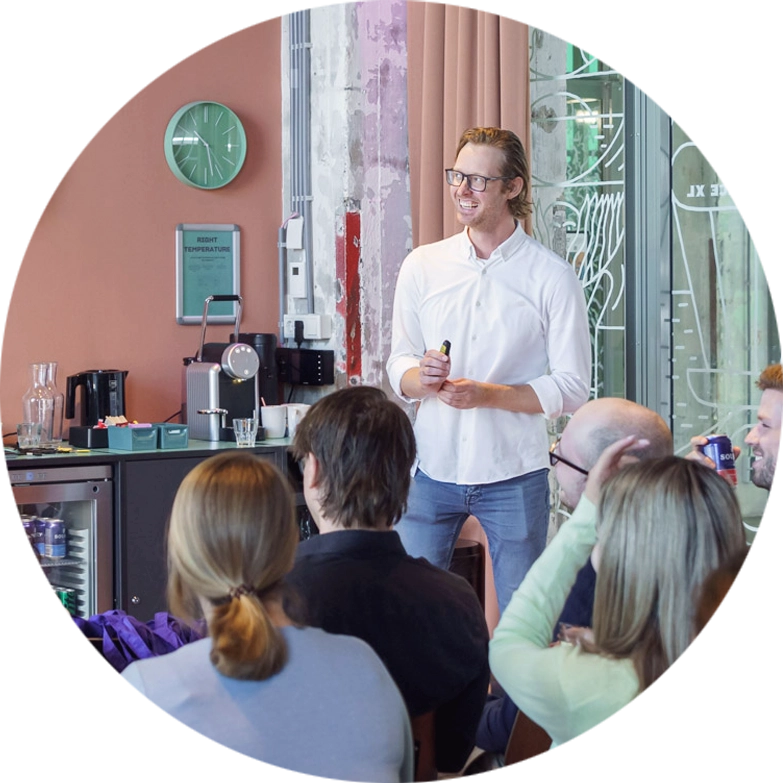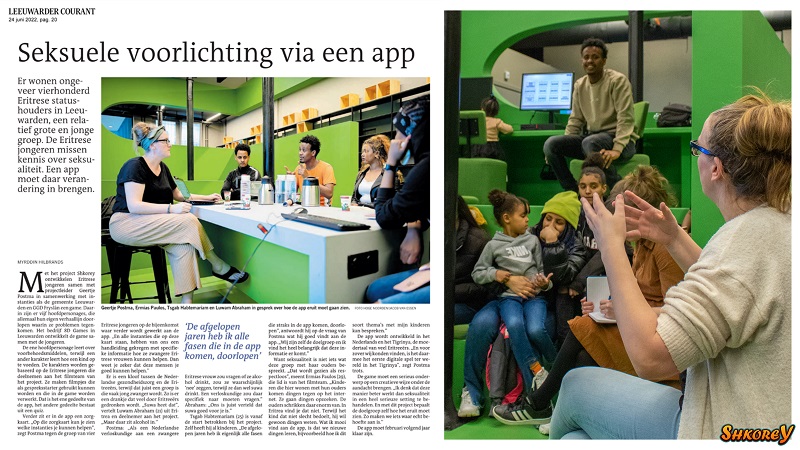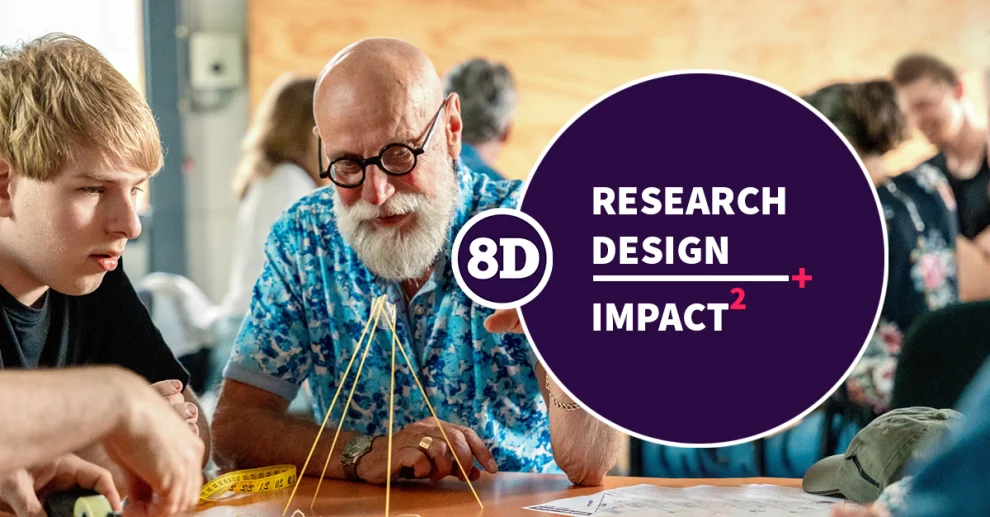Designing with empathy
As a researcher, do you want to not only gain knowledge, but also develop interventions that really make an impact for people? At 8D, we specialize in social design. We use design methodologies to address social and human issues.
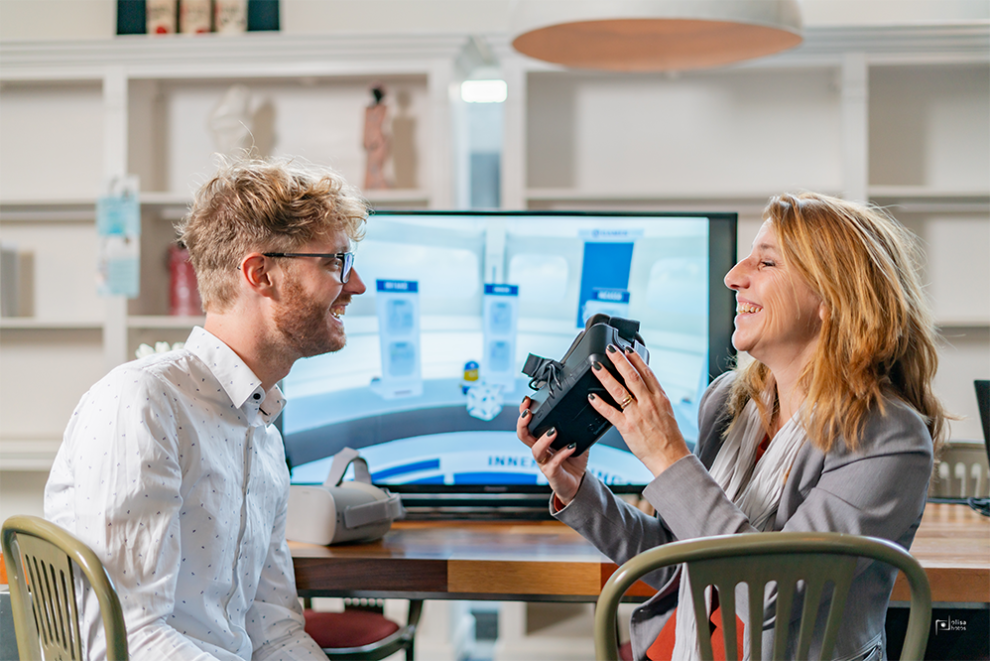
Social design without fuss
Social design and co-creation are common buzzwords that (unfortunately) too often lead to projects without tangible results-a status quo that we, as a hands-on team, do not accept. At the same time, we strongly believe in the power of human-centered design. That’s why we took matters into our own hands and developed our own approach to design-driven innovation.
Over the past decade, our team has brought together the best elements from the jumble of design-driven methodologies into our own approach. We’ve kept the strengths, removed unnecessary frills and added a hefty dose of pragmatism. The result is a robust process that delivers concrete and impactful results time after time.
The 8 steps of 8D
for impactful design
1. Empathize
In an interactive session with partners, domain experts, experience experts and end users, we create a deep understanding of all perspectives on the problem. In what we call a “problem storm,” we make sure all voices are heard. All you have to do is make sure the right people are at the table.
2. Delineate
We collect, test and refine the outcomes of the Empathise phase. Was the problem as we thought, or does the objective of the intervention need some adjustment? We clearly define the user needs and project frameworks in a clear document so that we can develop in a goal-oriented way.
3. Generate ideas
Our team develops creative concepts that meet established user needs and project frameworks. During a concept shootout, we analyze the strengths and weaknesses together, then reduce the ideas to a winning concept for further development.
8. Implement
For all our interventions, we strive for independent deployment. By this we mean that the materials must be able to continue to exist even without our involvement. Not because we don’t want to implement – quite the contrary. We simply know that this design framework leads to significantly more effective and sustainable interventions.
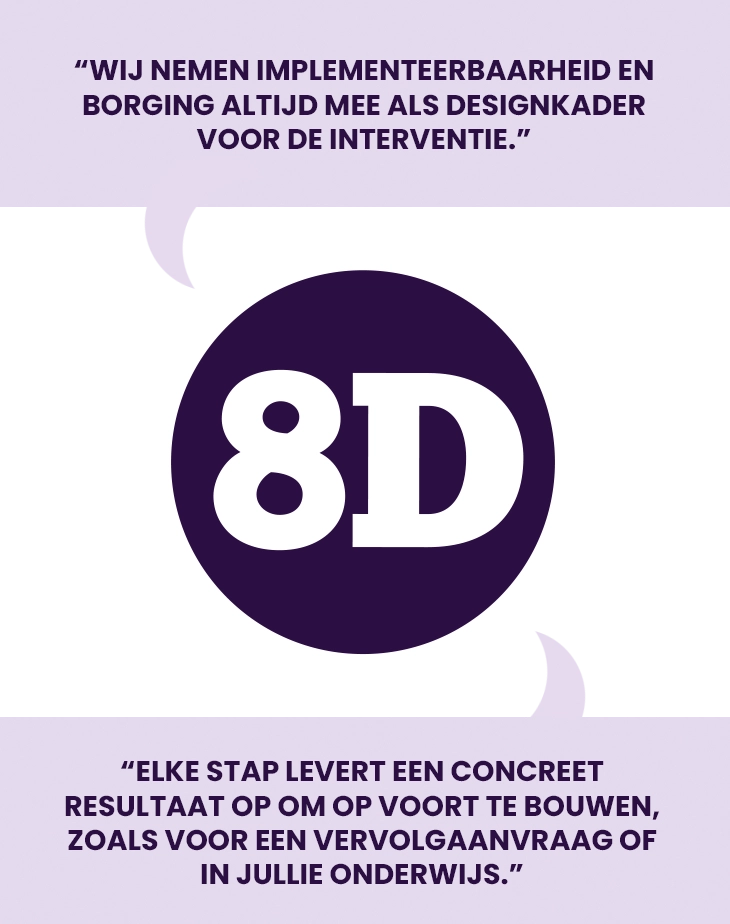
4. Concretize
Anyone who wants to keep a complex project on track must plan and concretize. After pitching and testing the concept, we create an execution plan with milestones, budget distribution and times when input from you or the target audience is needed. This is how we keep the momentum going and ensure that the result does not get stuck in the concept phase.
7. Functional testing
We merge all the content into a complete intervention with accompanying assurance materials. Our team tests internally that all components are functioning properly and can be deployed independently with the manuals. We identify and resolve any issues so that the intervention is ready for use by the (end) users.
6. Realize
In the “concretization” phase, we created a detailed implementation plan, allowing the production phase to proceed smoothly without unnecessary consultation or ambiguity. Everyone knows who makes what and why. In addition to production, 8D coordinates and facilitates this phase so that everything stays on schedule.
5. Prototypes
With as few resources as possible, we develop a version of the intervention that allows us to test its potential (both in terms of operation and assurance). We also conduct a component analysis in this phase: what parts does the intervention consist of and how do they interact with each other?

“In each step of our process, we go through a full design cycle: empathize, define, ideate, prototype and test. Thus, in each step we find an answer to the question: how can we deliver the most value – within the project framework – in this phase of the research?”
Examples of social design in research
Check out our icon cases! Inspiring research projects that have produced valuable results for both the research group involved and society.
The added value of design-driven research
An intervention succeeds only when there is a perfect balance between the user, the form and the context in which it is applied. Discover the value of design in our in-depth article on the properties of design-driven research.
Monthly Q&A
All about researching with social design
Want to know how to integrate social design and iterative design into your research design?
We regularly support researchers in strengthening and getting their applications honored. Every third Friday of the month, we host a free online Q&A hour where you can ask all your questions.
Sign up via johan@8d.nl and receive the time and dial-in link. Do you have specific questions or topics you would like to discuss? Feel free to add them to your sign-up email.
